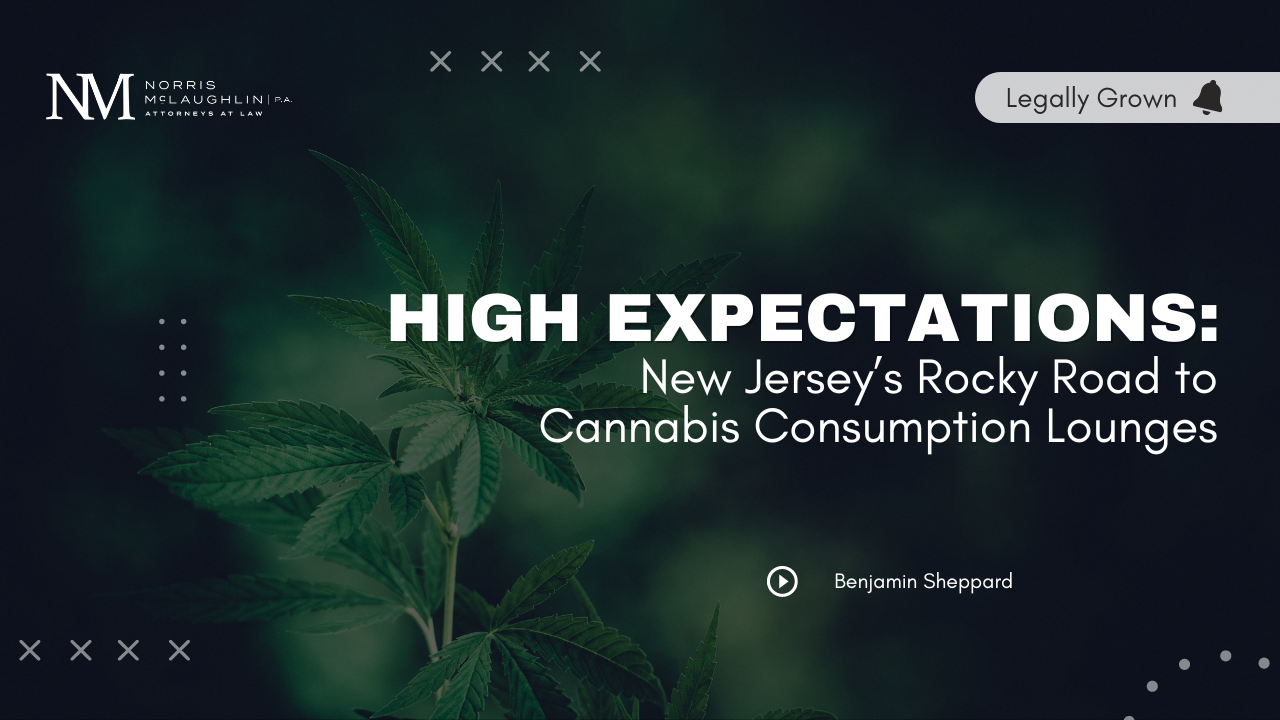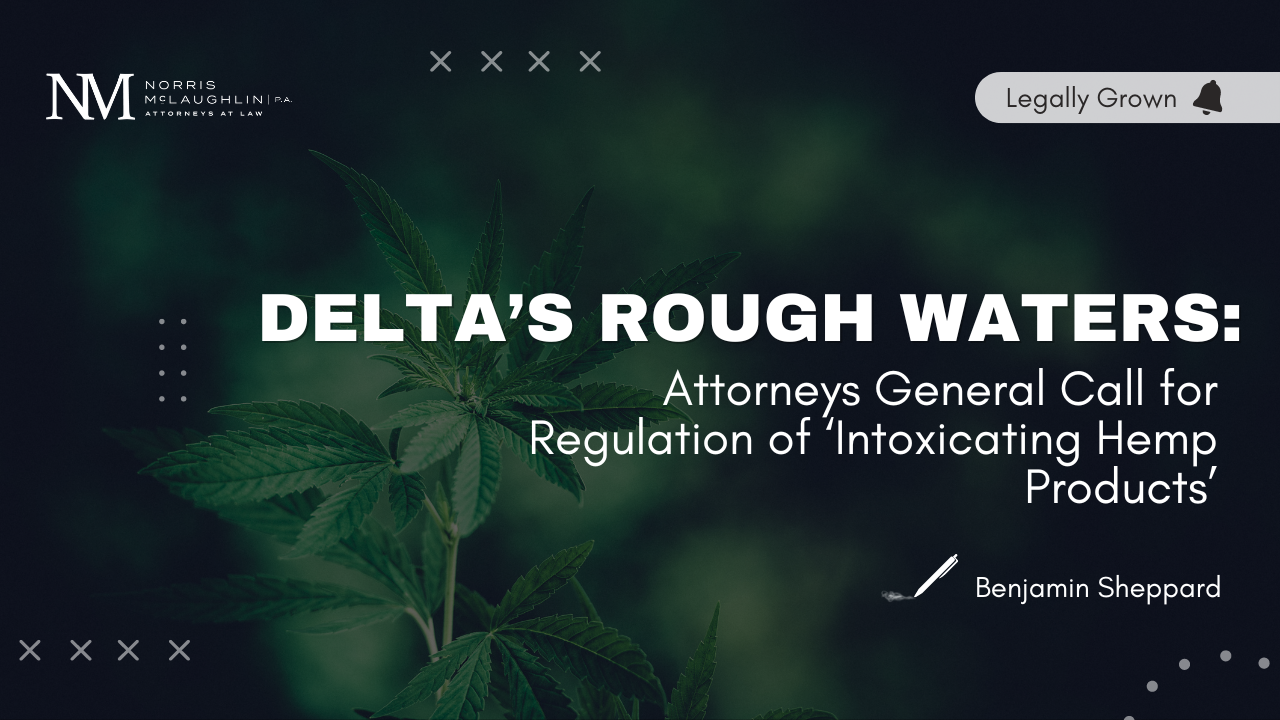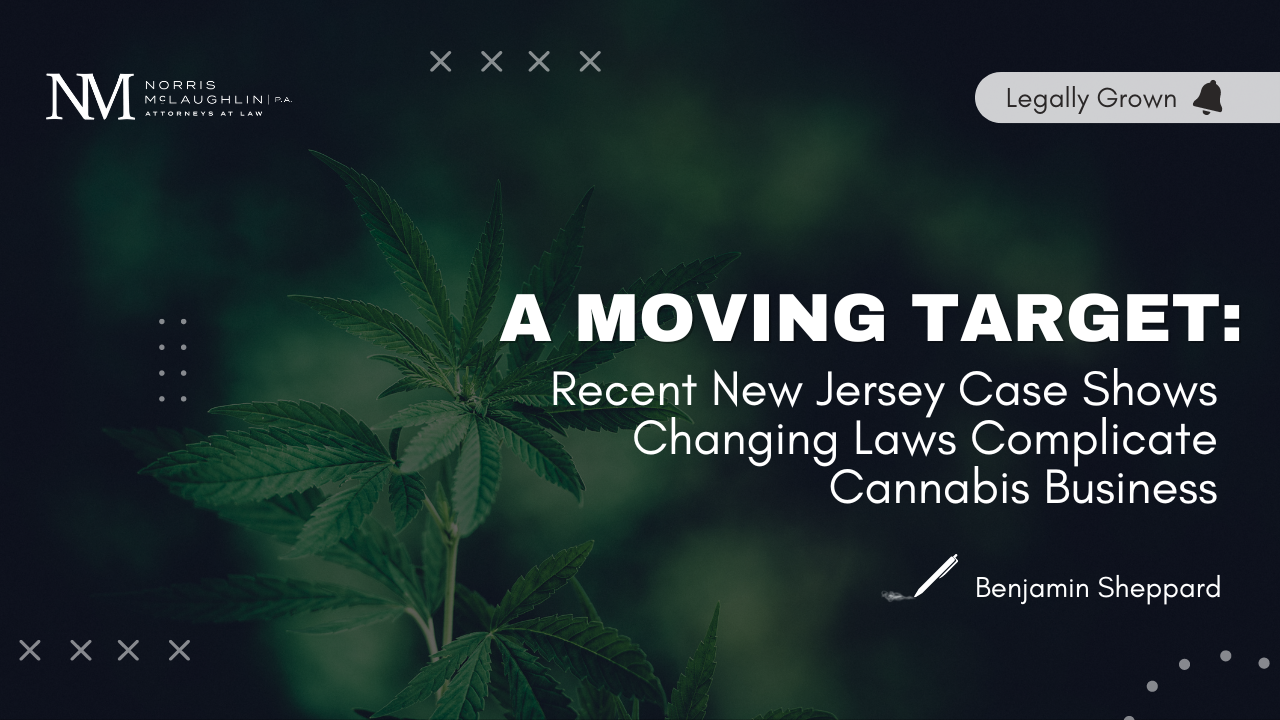High Expectations: New Jersey’s Rocky Road to Cannabis Consumption Lounges

New Jersey's Cannabis Regulatory Commission (“NJ-CRC”) has finalized regulations for cannabis consumption lounges, a significant development in the state's cannabis regulatory regime. Of the 24 states with recreational cannabis, only 10 permit cannabis consumption lounges.
Regulations for the lounges, soon to be published in the New Jersey Register, permit adults aged 21 and over to purchase and use cannabis products on-site in these lounges. Notably, medical cannabis patients are also allowed to bring their own products. However, the lounges face restrictions, such as a prohibition on selling food or alcohol, though customers can bring or order food subject to local laws. This mirrors previous restrictions placed on NJ breweries, wineries, and distilleries, including a prohibition on food truck coordination that was reformed on Jan. 16, 2024. Perhaps working with food trucks to “camp out” near the dispensary could serve as a practical workaround.
Cannabis businesses are limited to one social use license each, with associated fees of $1,000 for microbusinesses and $5,000 for standard businesses. An application portal for these licenses will soon open, with a focus on social equity and diversely owned businesses. The NJ-CRC anticipates that the addition of these lounges will generate more tax revenue and economic benefits for the state and serve as another way to incentivize cannabis tourism, while Pennsylvania still lags in developing recreational cannabis.
Despite these advancements, I have concerns related to the proposed regulations that hinder their viability. The strict prohibition of on-premises food sales leads to a diminished customer experience, limits revenue for cannabis companies, and forbids the establishment of a management company enabling a local restaurant to partner with the dispensary to serve its food. A lack of tipping also could impact staffing quality, as many employees rely on tips to supplement their income. Permitting medical patients to bring their own cannabis products is understandable, but it raises certain questions. How would this be enforced by budtenders? Would overconsumption occur, and how would that be measured?
But most importantly, the requirement that lounges be attached to dispensaries does not seem to help normalize cannabis use. After all, we do not require restaurants to be attached to liquor stores or beer distributors.
The NJ-CRC's move represents a bold step towards integrating cannabis into commercial and social settings, but addressing these concerns is crucial in order for the lounges to thrive and benefit the community.
For information about national and state cannabis law matters and regulatory compliance, please contact our Cannabis Law Practice Group attorneys: William J. Beneduce, Esquire (wjbeneduce@norris-law.com) for New Jersey Cannabis matters or Benjamin P. Sheppard, Esquire (bsheppard@norris-law.com) for Pennsylvania and/or New Jersey cannabis matters, or contact our offices at (908)722-0700.




